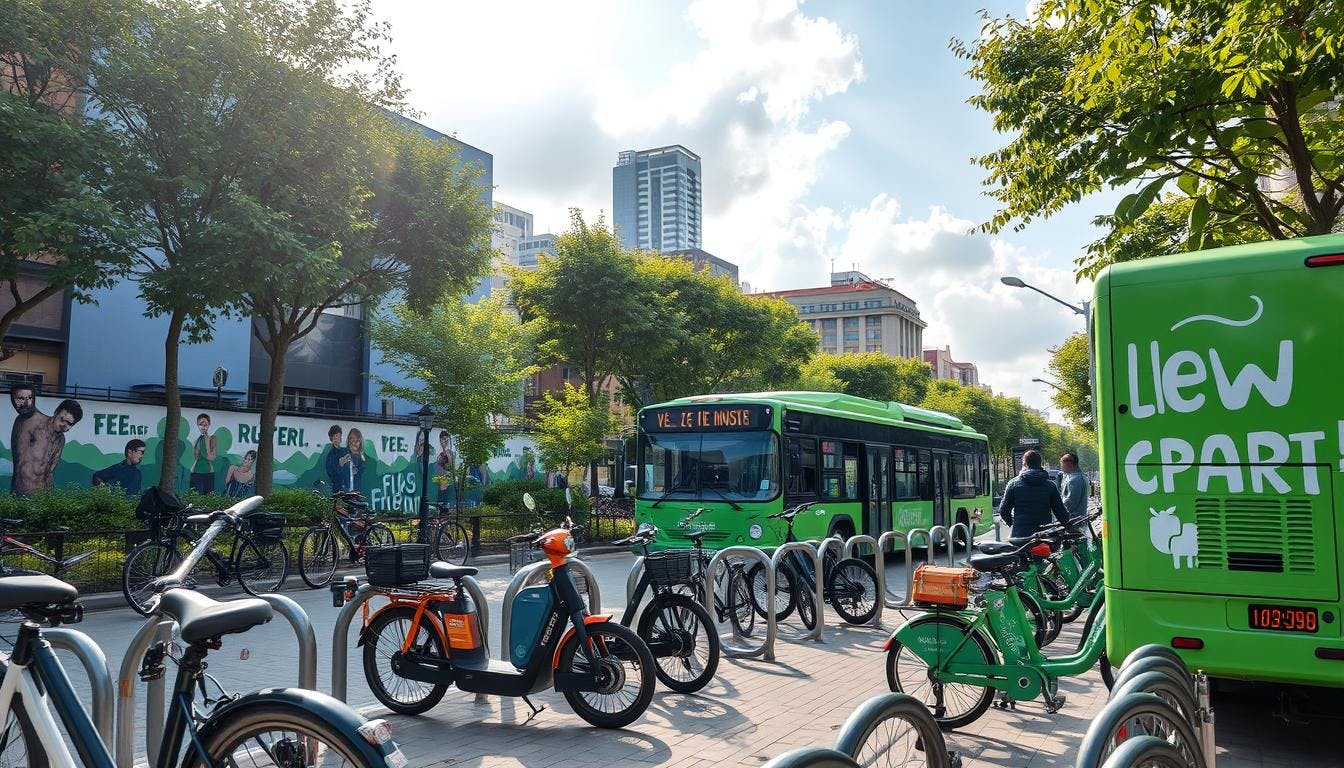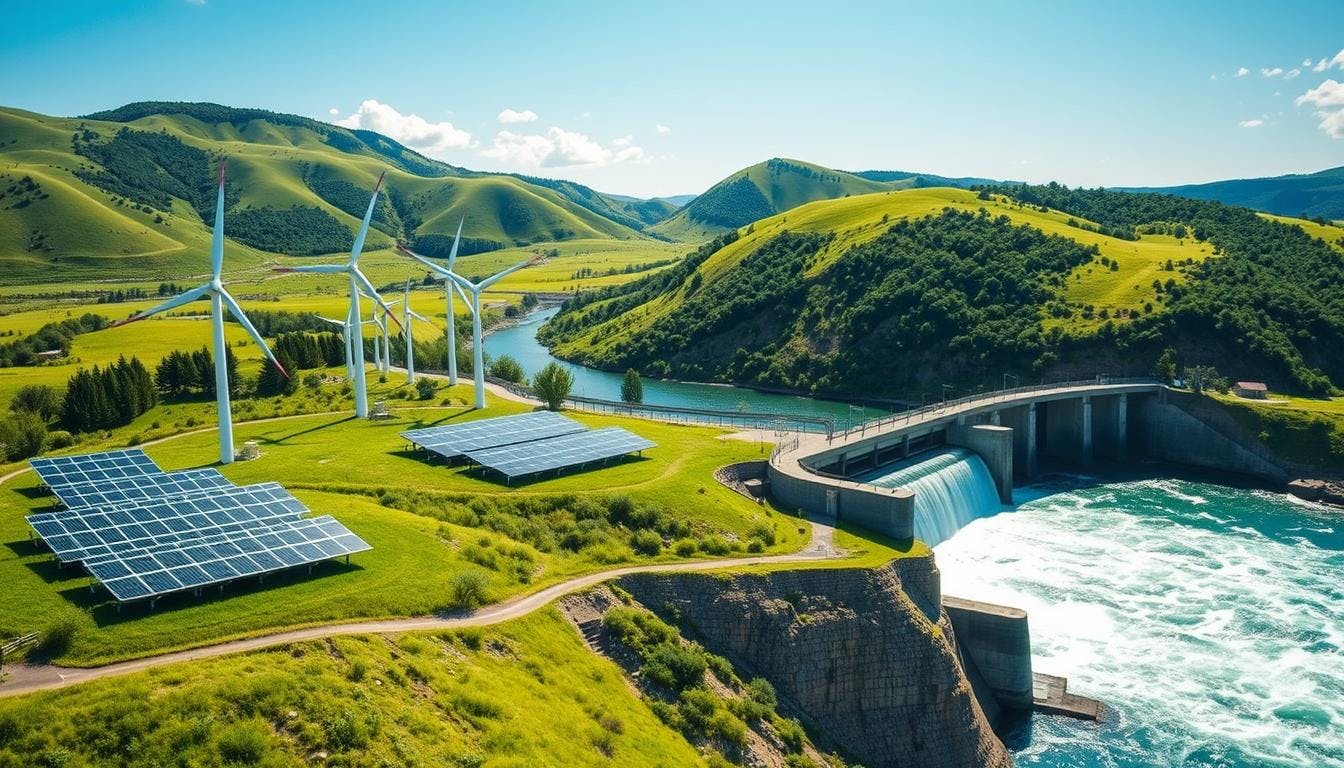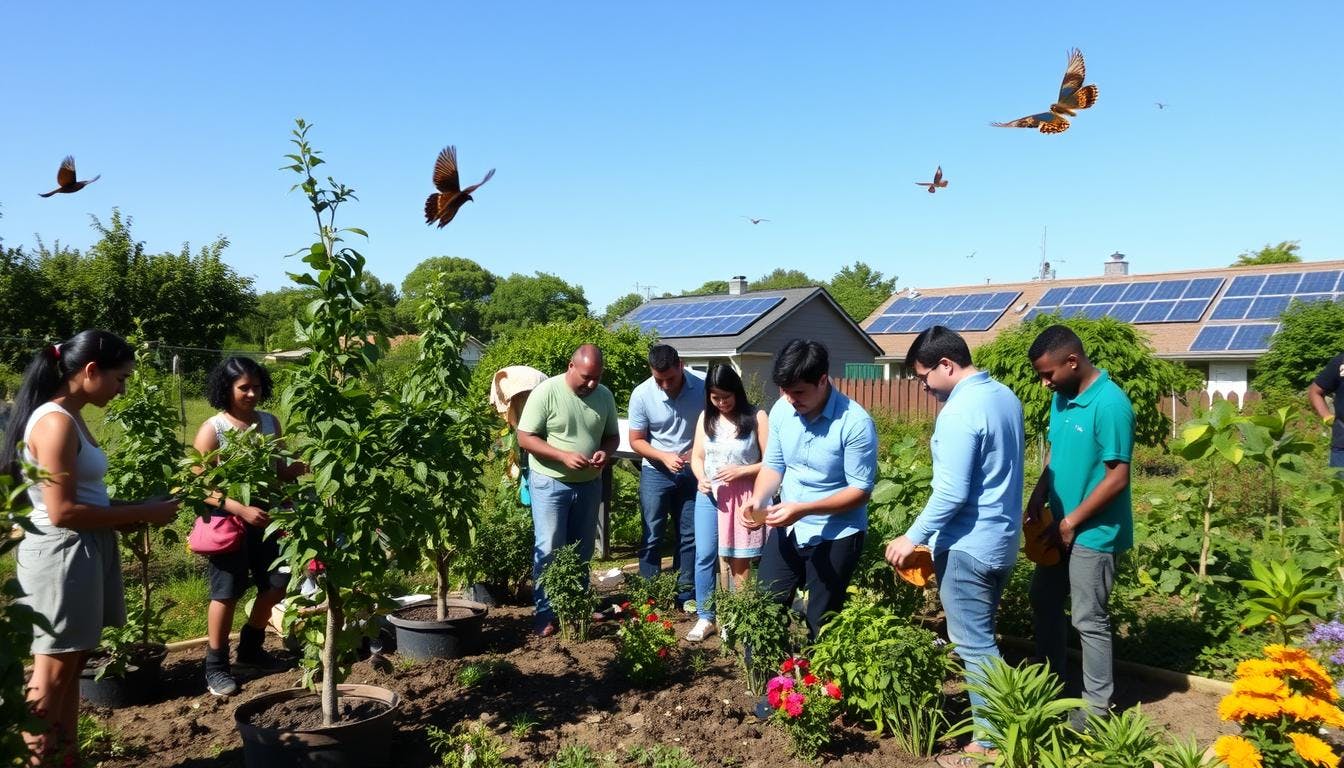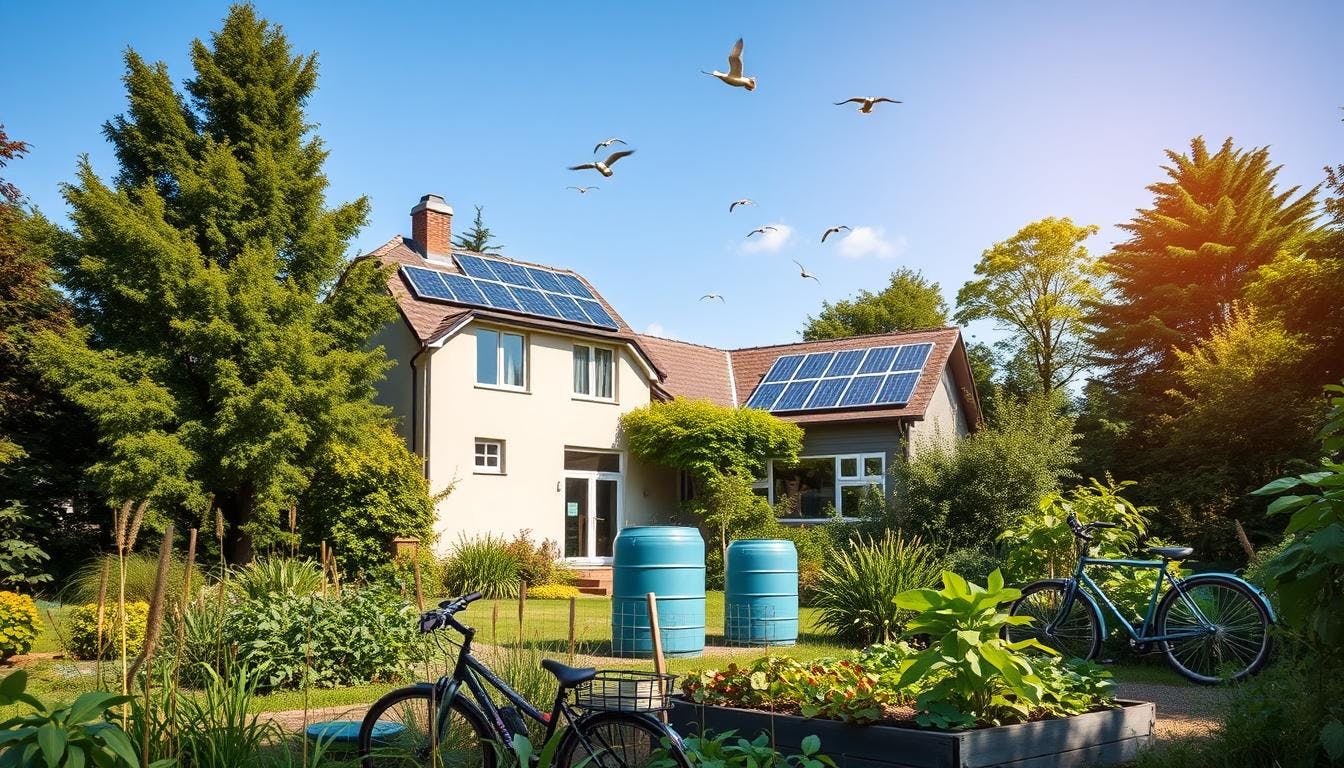Sign up. Be inspired. Get clicking.
Effective ways to reduce your carbon footprint today
23 January 2023
Climate change is a pressing issue, and it’s essential for everyone to take action. This article offers simple steps to live more sustainably. These adjustments can help reduce your carbon footprint and contribute to a healthier environment.
Altering your diet and adopting sustainable transport options are just a couple of ways to make an impact. This guide highlights various areas where positive changes can be made. By incorporating these straightforward practices, you can minimise your environmental impact and inspire others to follow suit.
Every effort counts, and collectively, these small actions can lead to meaningful change. Let’s explore sustainable living and discover how you can contribute today.

Understanding climate change and its impact
Climate change is a significant issue that requires our attention. It refers to long-term shifts in global weather patterns and temperatures, largely driven by increased greenhouse gases like carbon dioxide from human activities. These activities include burning fossil fuels, deforestation, and industrial processes.
The effects of climate change are extensive and serious. They include rising sea levels, more extreme weather events, and altered rainfall patterns. These shifts negatively affect human health, agriculture, and community stability. However, we can all contribute to addressing the issue by making thoughtful choices.
By reducing carbon emissions and supporting sustainable initiatives, we can make a difference. Simple actions, such as using public transport, conserving energy at home, and choosing responsibly sourced products, can collectively create significant change. When everyone takes part, the impact is substantial.

Sustainable eating habits for a healthier environment
Our food choices play an important role in addressing climate change. By eating in a more sustainable way, we can reduce our carbon footprint and contribute to a healthier environment.
Plant-based diets are a significant step forward. Eating less meat lowers the impact on natural resources and reduces environmental damage. It also supports biodiversity and more resilient ecosystems.
Reducing food waste is equally important. Planning meals, using leftovers, and composting are practical ways to discard less food. This helps limit methane emissions, a major contributor to climate change.
Opting for local, seasonal produce is another effective choice. It decreases emissions associated with transport and storage, making our eating habits more sustainable.
Every decision we make in the kitchen has an impact. By prioritising plant-based foods, minimising waste, and buying local produce, we can collectively create meaningful change—one meal at a time.
Transport choices that reduce carbon footprint
Addressing climate change requires multiple strategies, and transport is a crucial area of focus. Choosing sustainable transport options can significantly reduce carbon emissions and benefit the environment. Walking or cycling are simple ways to minimise impact while also improving health and fitness.
For longer journeys, public transport offers a practical solution. Buses, trains, and subways are more efficient and less polluting than individual cars. Carpooling or sharing rides with others also helps to lower overall emissions.
Electric and hybrid vehicles are another effective choice. They reduce or eliminate tailpipe emissions, making them a more sustainable alternative. As charging infrastructure expands and costs decrease, switching to these vehicles becomes increasingly accessible.
Every decision to travel more sustainably—whether walking, cycling, using public transport, or driving electric or hybrid vehicles—contributes to reducing environmental impact. Every step we take makes a difference.

Energy efficiency at home
Improving energy efficiency at home is essential for reducing your carbon footprint and addressing climate change. A straightforward step is to switch to LED lighting. LEDs consume significantly less electricity than traditional bulbs and last longer, which also saves money.
Another easy habit is to unplug electronics and appliances when they are not in use. Many devices continue to draw power even when switched off, a phenomenon known as 'phantom energy'. Unplugging them prevents this waste and enhances your home's energy efficiency.
When purchasing new appliances, opt for energy-efficient models. Refrigerators, washing machines, and dishwashers designed to use less energy can have a positive impact on the environment. Look for certifications such as the Energy Star label to ensure they meet high efficiency standards.
By adopting these simple practices, you can lower your energy bills and contribute to a healthier environment. Every small step towards energy efficiency at home creates meaningful progress for the future.


Reducing water usage with simple changes
Reducing water usage is an important part of sustainable living. Making small, practical changes in our daily routines can have a significant impact, helping to preserve water resources for future generations.
One effective step is to take shorter showers. In the UK, a typical shower uses around 10 litres of water per minute. Reducing shower time by just a few minutes can save substantial amounts of water. Additionally, fixing leaks promptly can prevent the wastage of hundreds of litres each day.
Opting for native plants in gardens is another wise choice. These plants require less water as they are adapted to the local climate. Incorporating drought-resistant species further reduces water consumption, making it easier to maintain a water-conscious lifestyle.
Waste reduction strategies for everyday living
Waste minimisation is crucial in addressing climate change. By adopting sustainable practices, we can reduce our environmental impact. Proper recycling plays a key role, as it involves sorting waste into categories for paper, plastic, glass, and organic material.
This approach allows materials to be reused rather than ending up in landfills, contributing to a cleaner environment.
Adopting a minimalist lifestyle is another effective strategy. Purchasing fewer items, opting for durable products, and repurposing old belongings all help to reduce waste, conserve resources, and save energy.
Composting is also highly beneficial. It transforms food scraps and yard waste into nutrient-rich soil, reducing methane emissions from landfills while providing healthy soil for gardening.
By following these methods, we can support a more sustainable future. Every small action towards reducing waste and living sustainably strengthens the environment.


Sustainable fashion choices
In today’s fast fashion world, choosing sustainable clothing is essential for addressing climate change. The fashion industry is a major polluter, responsible for around 10% of global carbon emissions. We can all contribute by making more sustainable fashion choices and supporting a responsible industry.
Thrifting and upcycling are excellent ways to live sustainably. Secondhand shops and online platforms offer a wide range of pre-loved clothing. Shopping secondhand reduces the demand for new garments, helping to lower carbon emissions. Upcycling also allows us to create something new and sustainable from old clothing.
Supporting sustainable fashion brands is another important step. These brands use environmentally responsible materials, pay fair wages, and minimize waste. Purchasing from them helps reduce the fashion industry's carbon footprint and encourages other companies to adopt more sustainable practices.
Choosing sustainable fashion is a simple yet impactful action. By thrifting, upcycling, and supporting sustainable brands, we can make a significant difference. Together, we can address climate change, one item of clothing at a time.
Supporting renewable energy resources
The world is facing a significant challenge with climate change. Transitioning to renewable energy is essential. Solar, wind, and hydropower are sustainable alternatives to fossil fuels, helping to reduce environmental damage.
Installing solar panels at home or at work is a great way to contribute. Solar energy is clean, limitless, and helps lower carbon emissions and energy bills. It’s a step towards a more sustainable future and supports the renewable energy industry.
Choosing a renewable energy provider also makes a meaningful difference. Many companies offer plans powered by renewable energy sources. By selecting these options, you show your support for a cleaner energy system and encourage others to follow suit.
It’s also important to advocate for policies that prioritise renewable energy. Push local and national governments to focus on clean energy initiatives. This could include solar incentives or the expansion of wind farms, accelerating our shift to renewable sources.
Together, we can make the energy sector more sustainable. This reduces our reliance on fossil fuels and contributes to tackling climate change.


Community involvement and educational efforts
Working together to protect the environment is essential. By engaging in local activities, we can all make a meaningful difference. Joining clean-up events, supporting environmental groups, or educating others about sustainability are all great ways to contribute.
It’s crucial to raise awareness about climate change and how we can live more sustainably. Educational initiatives help people understand that small actions can collectively lead to significant change. This knowledge motivates us to care for our environment and encourages others to do the same.
When we work together, we can achieve more. Local projects like planting trees or cleaning beaches not only help the environment but also foster a sense of shared responsibility for our world.
Mindfulness and sustainable Living
In today’s fast-paced world, it’s easy to overlook how our actions impact the environment. However, by living mindfully, we can make a significant difference. This approach helps us address climate change more effectively.
Being mindful of the content we consume is crucial. Look for material that teaches us how to live sustainably. Additionally, consider how we use resources, such as avoiding plastics and reducing food waste. These small steps can lead to a more sustainable lifestyle.
Reflecting on our daily choices is important. By thinking about the environment, we make better decisions. This might involve walking instead of driving or using renewable energy sources.
The journey to a sustainable life is about more than just doing good. It’s about learning, evolving, and adapting. By living sustainably with mindfulness, we not only support the environment but also inspire others to follow suit.

The role of advocacy and political engagement
Climate change requires a wide range of solutions, and advocacy and political action are crucial. By voting for policies that support sustainability and backing businesses that prioritise the environment, we can make a significant impact. This helps to drive change on a larger scale.
Online activism has become a powerful tool in addressing climate change. Social media and digital movements allow us to raise awareness, push for policy changes, and hold governments and companies accountable. Together, we can advocate for laws that promote carbon offsetting and reduce our carbon footprint.
By voting in local and national elections, we can make our voices heard. We can choose leaders who prioritise environmental protection and clean energy. This can lead to policies that genuinely improve our world for the better.
17 South Street
Auckland 1010
New Zealand
info@carbonclick.com- -
- X
Subscribe now to stay up to date with CarbonClick, carbon offsetting and climate action.
By signing up you agree to our Privacy Policy.


